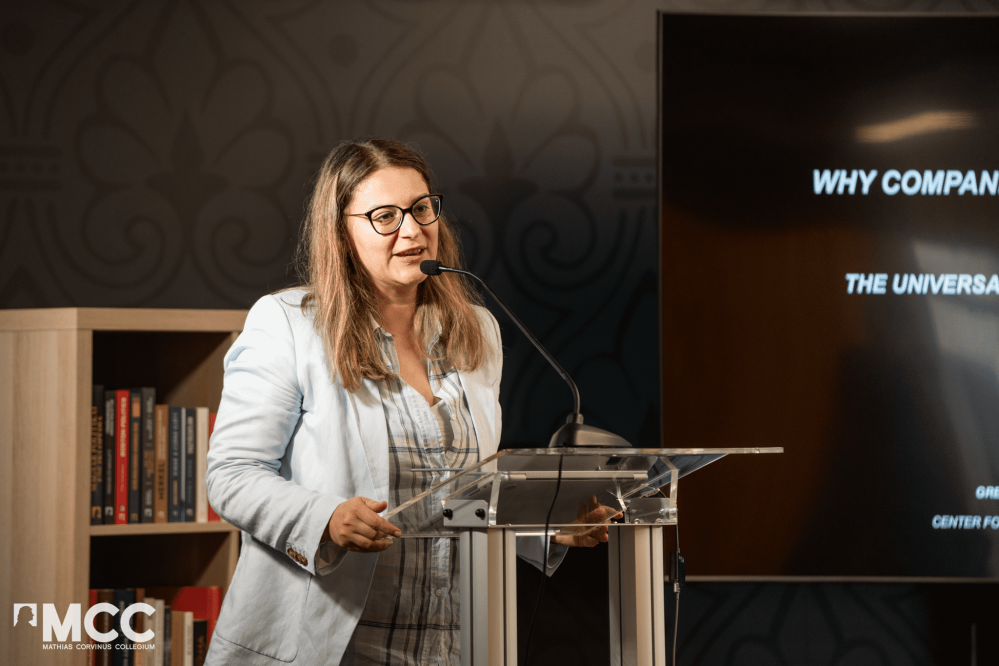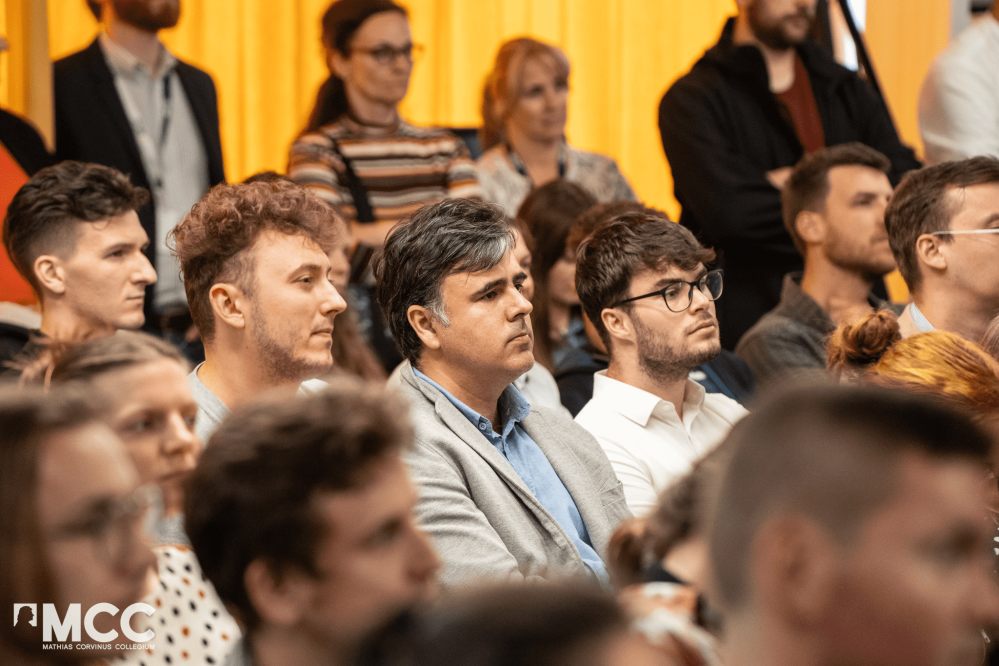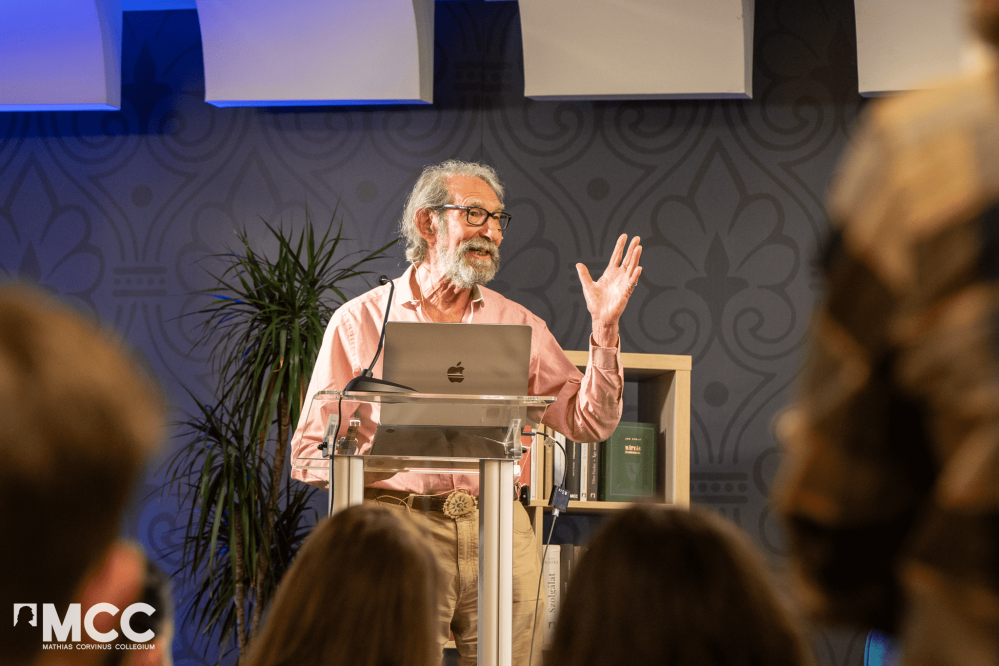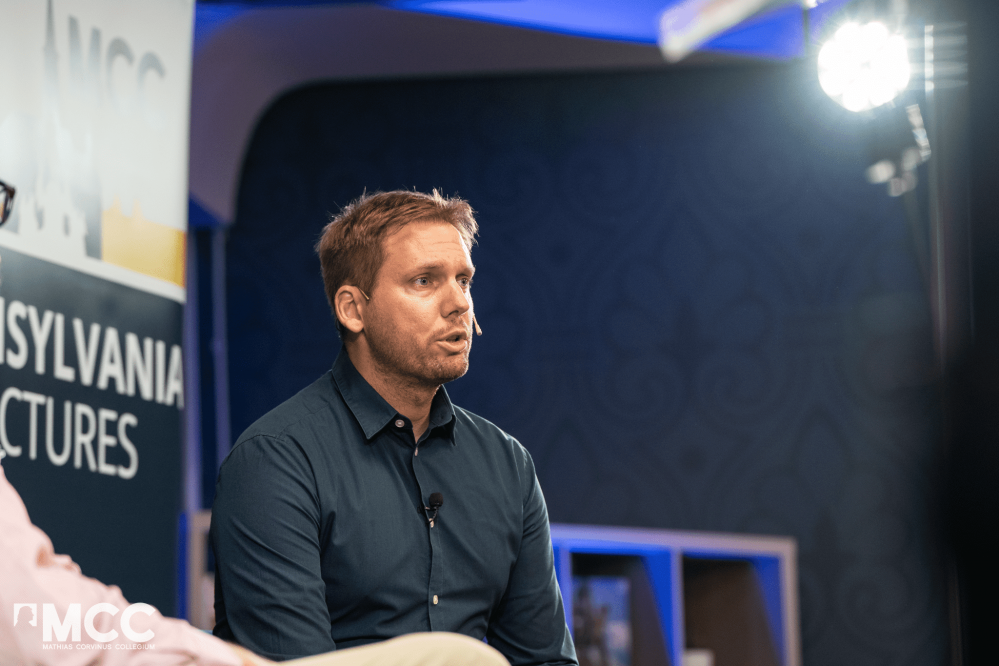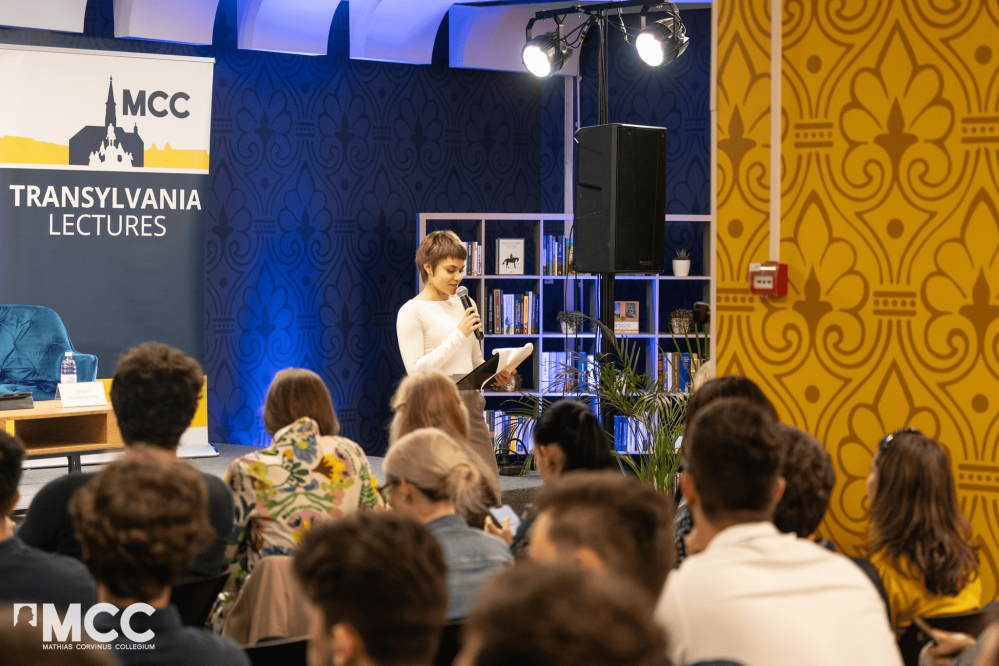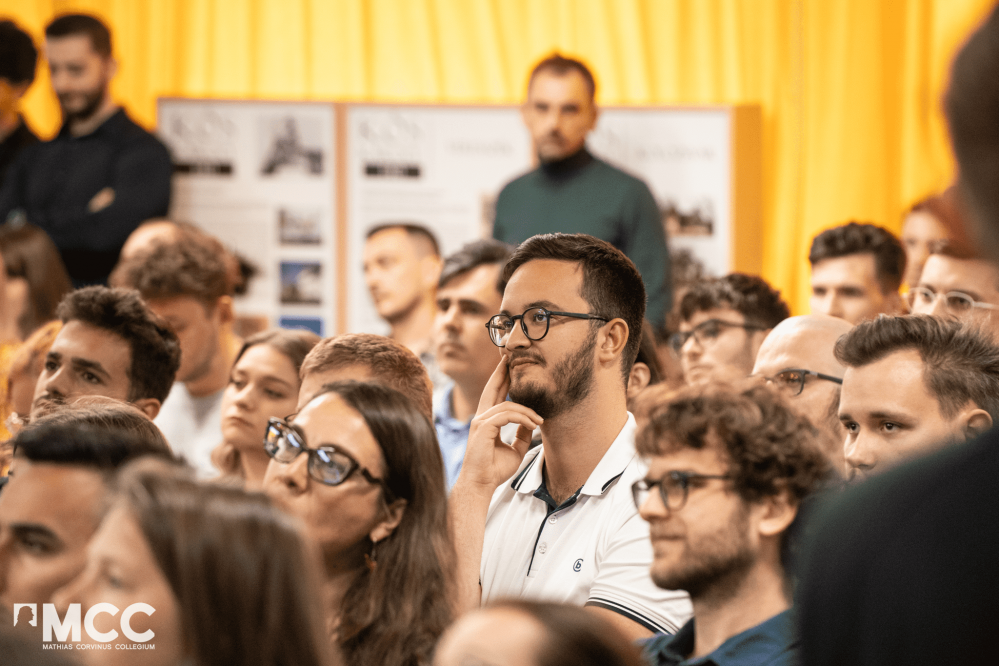Reading time: 4 minutes
The audience was a handshake away from John von Neumann, Edward Teller and Robert Oppenheimer at Mathias Corvinus Collegium’s (MCC) event in Klozsvár/Cluj on 22 May. The guest speaker of the Transylvania Lectures series was Dr Geoffrey West, one of today's most respected theoretical physicists. The 83-year-old expert presented his theory exploring the great interconnections between cities, companies, and sustainability. His partner in discussion was Gergely Böszörményi-Nagy, founder of Brain Bar Festival.
Behind the complex organisations and phenomenons of our world are simple laws that govern both nature and man-made structures. Geoffrey West has brought together the fields of physics, biology, and social sciences with a team of scientists to answer big questions such as the limits of growth and decay, how long a company can survive, how urbanisation can be sustainable, and whether the collapse of society can be predicted and avoided. Gergely Böszörményi-Nagy pointed out that we are living in an era of hyper-specialisation, of silos, and it is rare that someone in his own career links the versatile and multidimensional nature of science so efficiently.
At the event, Emese Oláh, Deputy Mayor of Kolozsvár/Cluj-Napoca welcomed the participants, while Anna Bárdos, a student of the MCC University Program, introduced the guest speakers. Dr Geoffrey West is the Shannan Distinguished Professor and former President of the Santa Fe Institute and an Associate Senior Fellow of Oxford University’s Green-Templeton College. Earlier he was the leader, and founder, of the high energy physics group at Los Alamos National Laboratory and has taught at institutions such as Imperial College and Nanyang Technical University in Singapore. In 2006 he was named to Time magazine's list of "100 Most Influential People in the World".
At the lecture, Geoffrey West explained why our cities can be the catalysts of human decline or the key to saving society. Urbanisation has increased exponentially over the last 200 years: from around 15% worldwide at the beginning of the 20th century, it was roughly 30% in 1950 and exceeded 50% around 2007-2008. "Every week more than a million people are moving to cities around the world, so by the end of this week we could have another Cluj," the physicist said.
The speaker pointed out that while cities are central to civilization, driving innovation and economic growth, but also contributing to global challenges like climate change and pollution. “The city is the most amazing machine that we invented, but the infrastructure is just the facilitator of the social interactions”, said West. As unstoppable growth raises many problems, there is an urgent need for a scientific solution that can address development and sustainability in a quantitative way.
Geoffrey West found the answers in nature: he draws parallels between biological systems and cities, forests and infrastructure, blood circulation and social networks, exploring the concept of scalability and the role of networks in both. He pointed out that the same scaling laws apply to the components of cities as to living systems.
The principle of scaling allows many scientific and social questions to be predicted by mathematical methods. West observed that while biological systems exhibit sublinear scaling, cities demonstrate superlinear scaling in socioeconomic factors like wages and innovation. This means that the larger a city, the more innovation and economic growth it will experience, but with it will come higher rates of crime and disease, for example. And superlinear scaling leads to an increased pace of life and the need for continuous innovation to avoid collapse.
West also discussed the scaling of companies, noting their sublinear scaling and eventual decline, contrasting with the potential for cities to grow indefinitely but with the risk of unsustainable acceleration. The biggest challenge is whether humanity will be able to co-exist with nature in a sustainable way. He concluded by emphasizing the importance of understanding urban scaling to address the challenges and opportunities of the 21st century. He believes that it is not the quantity but the quality of innovation that counts, and whether useful discoveries can be applied at a systemic level.
"It is a great honour that Dr Geoffrey West accepted our invitation to visit Kolozsvár/Cluj. With our Transylvania Lectures series, we have been trying for more than two years to organise open, useful and valuable discussions for all interested parties, bringing together excellent experts from all over the world. We want these frank exchanges to benefit the local community and provide a space to discuss the important issues of our time", said Botond Talpas, General Director of MCC in Transylvania.
During his stay in the city, Geoffrey West has also met with MCC students. Furthermore, in collaboration with MCC, he gave an informative lecture at the local János Zsigmond Unitarian College and Babeș-Bolyai University.
